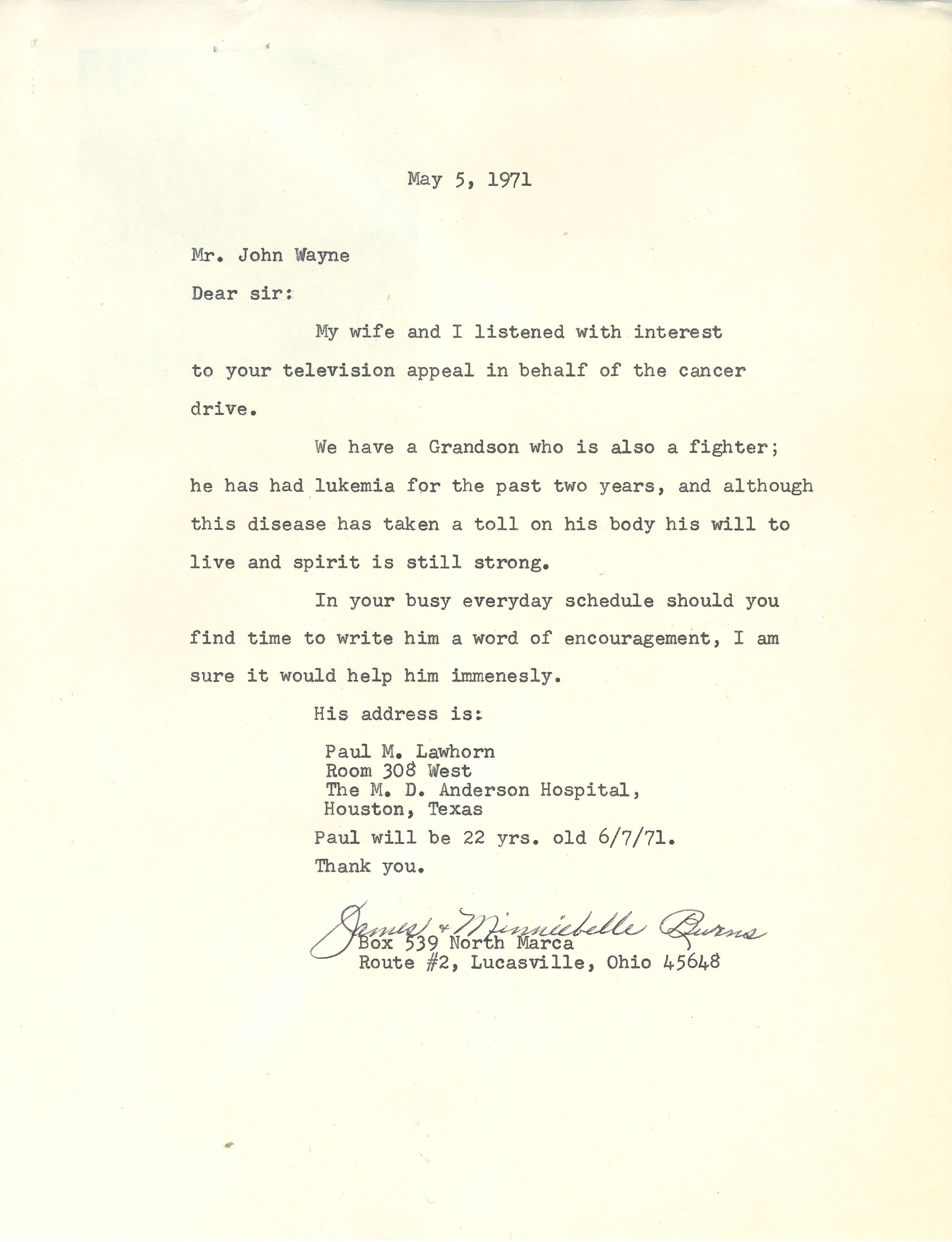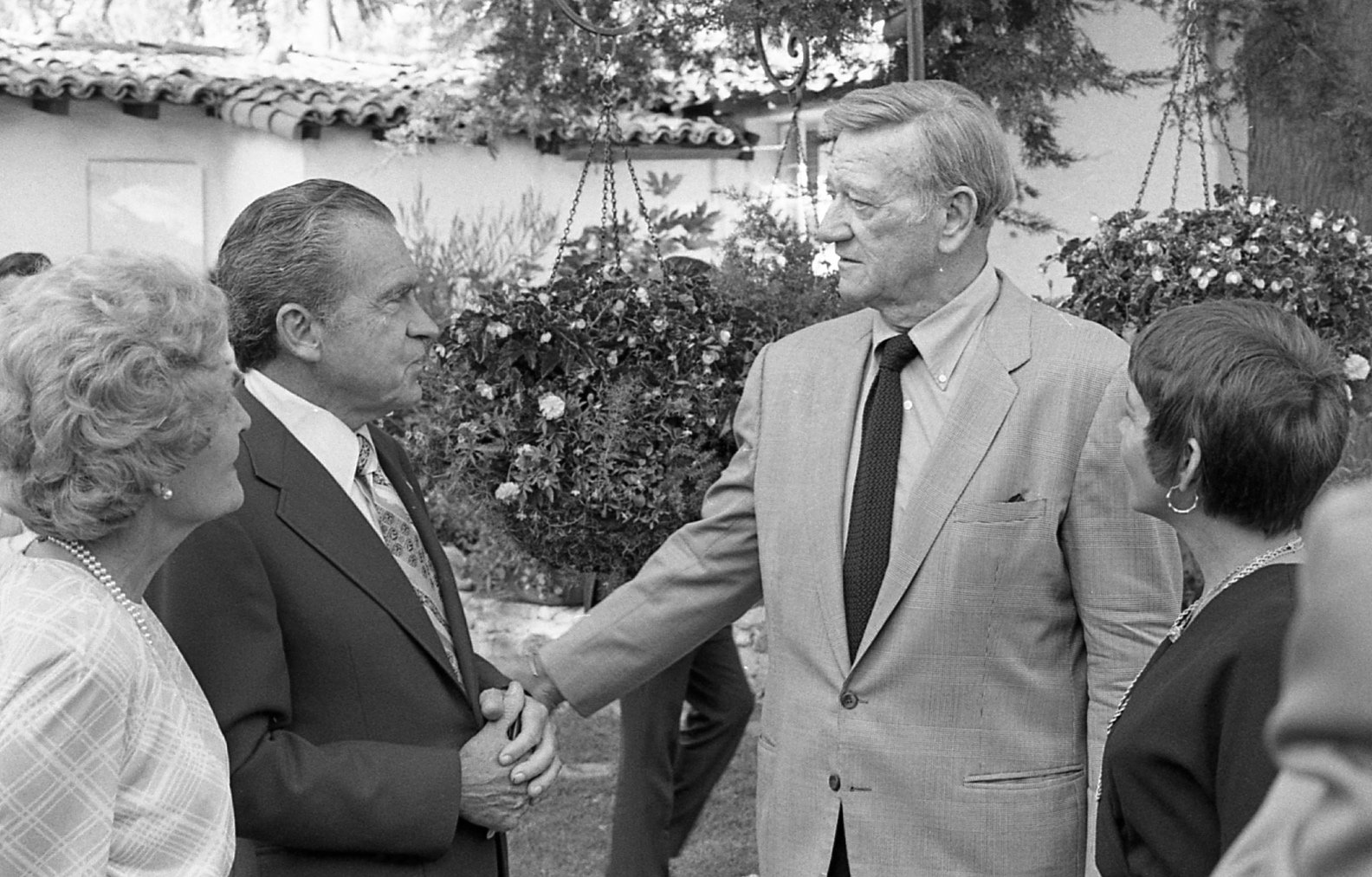
The Richard Nixon Presidential Library and Museum pays tribute to the landmark Cancer Act on its 50th anniversary—with a special salute to John Wayne.
Written by Constance Dunn
In 1964 doctors discovered a cancerous tumor on John Wayne’s left lung. By the end of the year it had been removed and Duke went back to making movies. Fifteen years later he learned that cancer had once again returned, and on June 11, 1979 the American icon passed from pancreatic cancer at age 72. In between those years, much progress had been made in terms of understanding and creating awareness about the disease—including the signing of the historic National Cancer Act of 1971 by his friend President Richard Nixon.
To commemorate the 50th anniversary of the Act, which created The National Cancer Institute, along with other organizations and programs aimed at research and treatment of the disease, the Richard Nixon Presidential Library and Museum—located in Nixon’s hometown of Yorba Linda, California—will host an exhibit and a two-day academic conference. The exhibit titled “A Commitment to Hope: Richard Nixon and the National Cancer Act, and opening November 12, will overview the factors that led to creation of this federal initiative, which focused solely on only one disease—unprecedented at the time. But so was cancer, about which was relatively little known, but by 1970 had become the second leading cause of death in the United States.



Wayne’s unflagging push to raise awareness of the disease and help others battle it—often behind the scenes—kicks off the exhibit. In addition to correspondences between the Duke and President Nixon are cancer awareness PSAs starring Wayne, and heartfelt messages he personally penned to individuals coping with cancer. “John Wayne speaking out about his cancer diagnosis was a transformative moment,” says Joe Lopez, vice president of Marketing and Communications at the Richard Nixon Foundation. “For a long period of time in the United States cancer was treated as an untreatable disease and wasn’t really discussed.”
data-animation-override>
“John Wayne speaking out about his cancer diagnosis was a transformative moment.”
— Joe Lopez, Richard Nixon Foundation
To have an influential public figure such as Wayne, icon of rugged strength and independence, speak openly about his illness enabled others to do the same. “The public perception of cancer begins to transform,” Lopez explains. “It becomes something that can be talked about amongst friends, or between doctor and patient—and the options available for treatment start to expand.”
The two-day conference, happening on December 1 and 2, will feature speakers and events and is focused on the present and future of cancer research and treatment. The span of expertise will be all-encompassing, ranging from researchers and physicians to journalists, activists and public health officials. Coincidentally, among the co-chairs of the conference are Marlene Malek and Dr. Ellen Sigal, who co-founded Friends of Cancer Research (now a leading research think tank and advocacy organization) back in 1996 to commemorate the 25th anniversary of the National Cancer Act.
Fitting too, is the involvement of the John Wayne Cancer Foundation , which was created by the Wayne family in 1981 to continue their father’s quest to defeat cancer. It was a quest John Wayne shared with his friend Richard Nixon in life, and one that continues on as a vital—and active—part of each man’s legacy. For according to Nixon Foundation Chairman Dr. James H. Cavanaugh, who at the time of the Act’s passage was President Nixon’s staff assistant for Health Affairs: “The former President considered his national cancer initiative to be perhaps his greatest achievement.”



Photographs courtesy of the Richard Nixon Presidential Library and Museum


